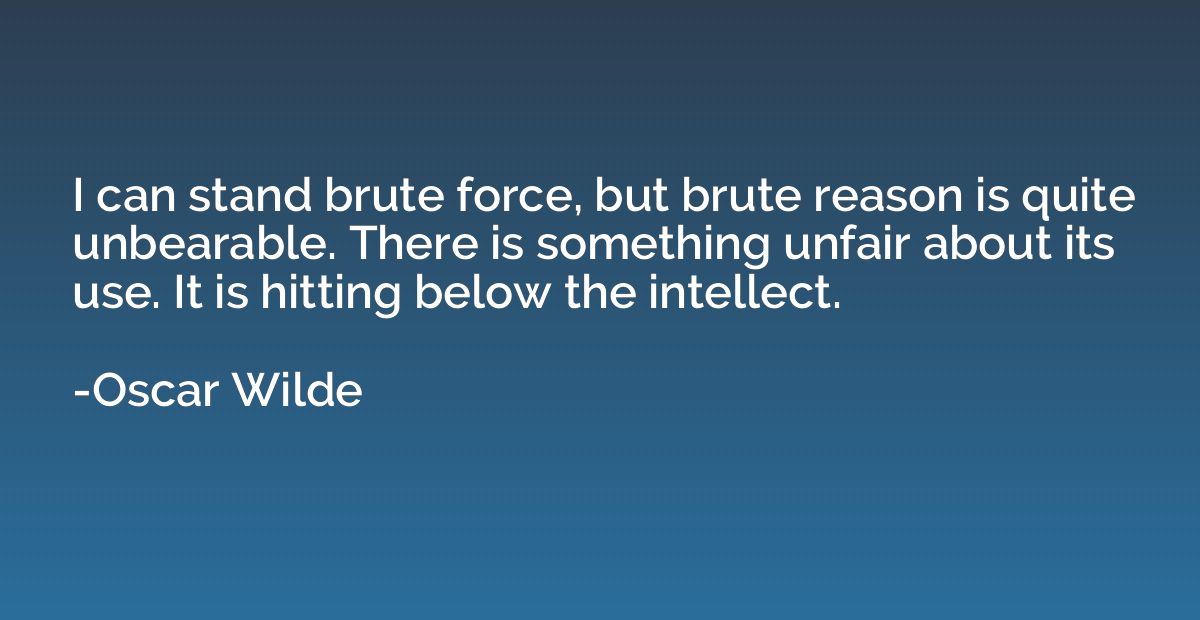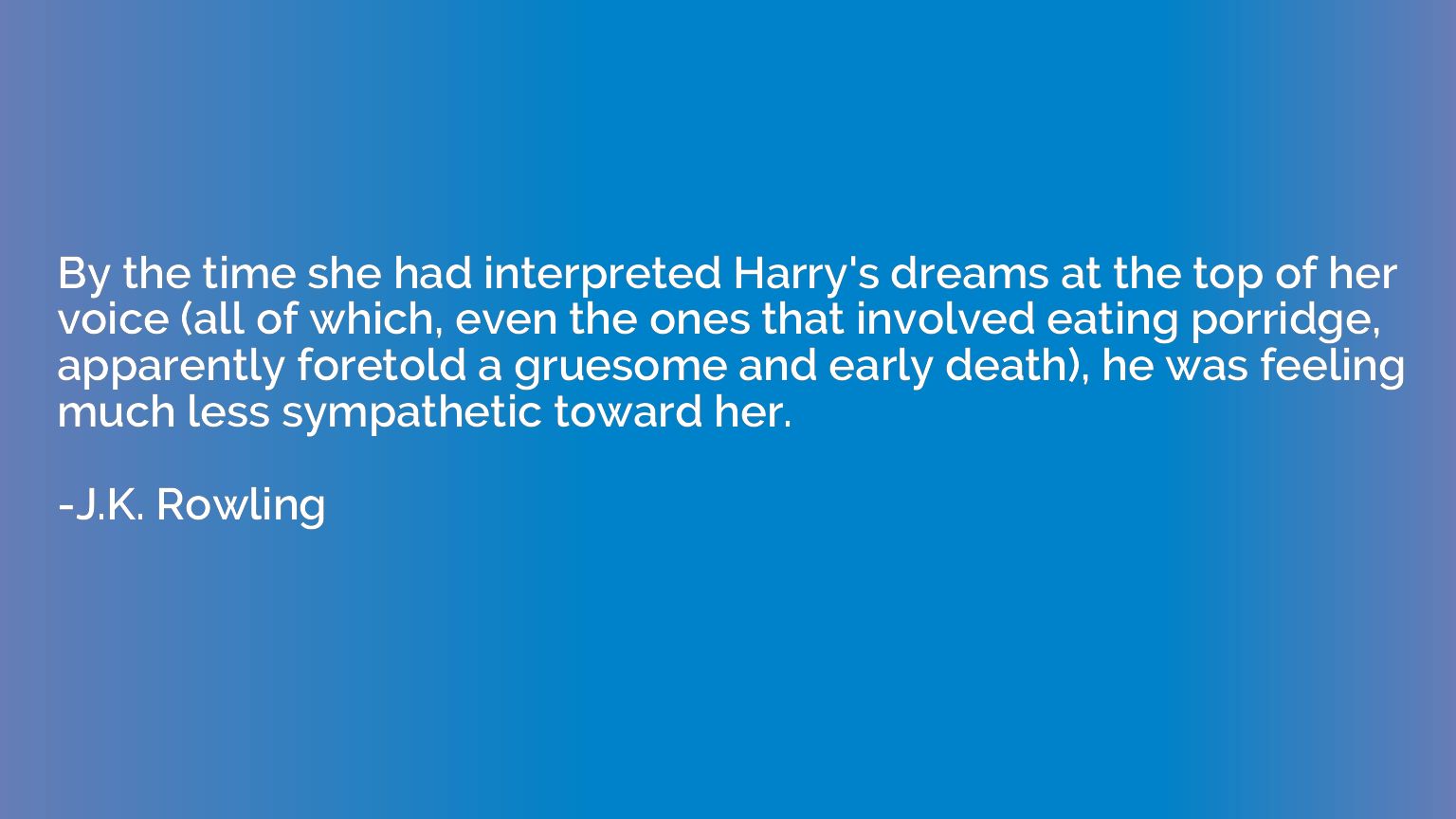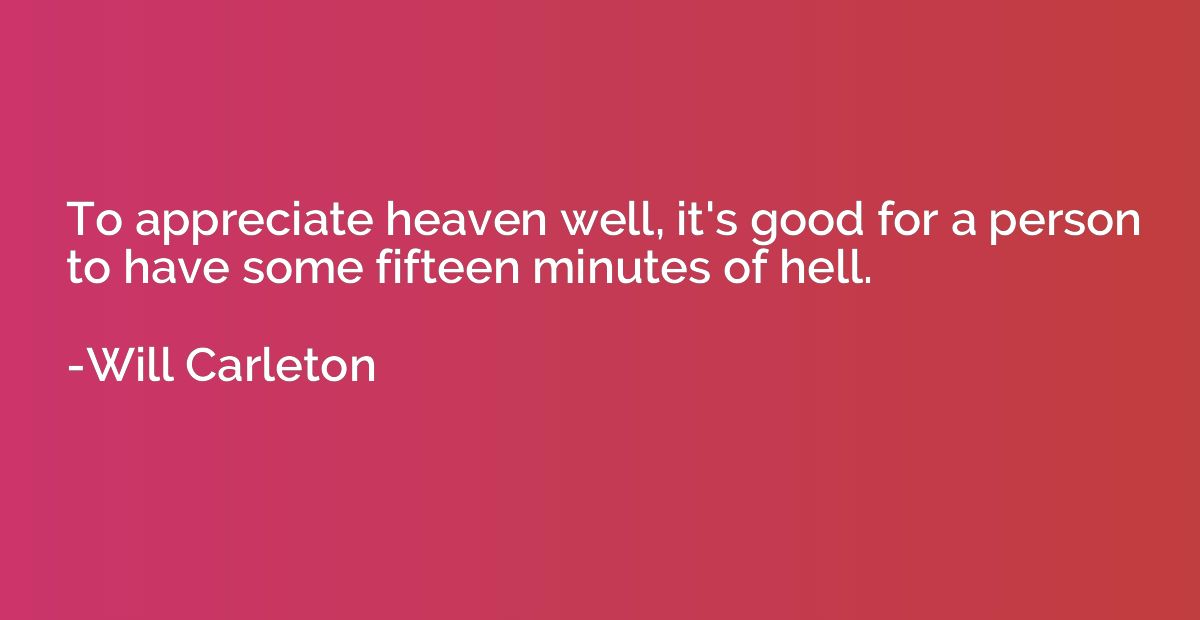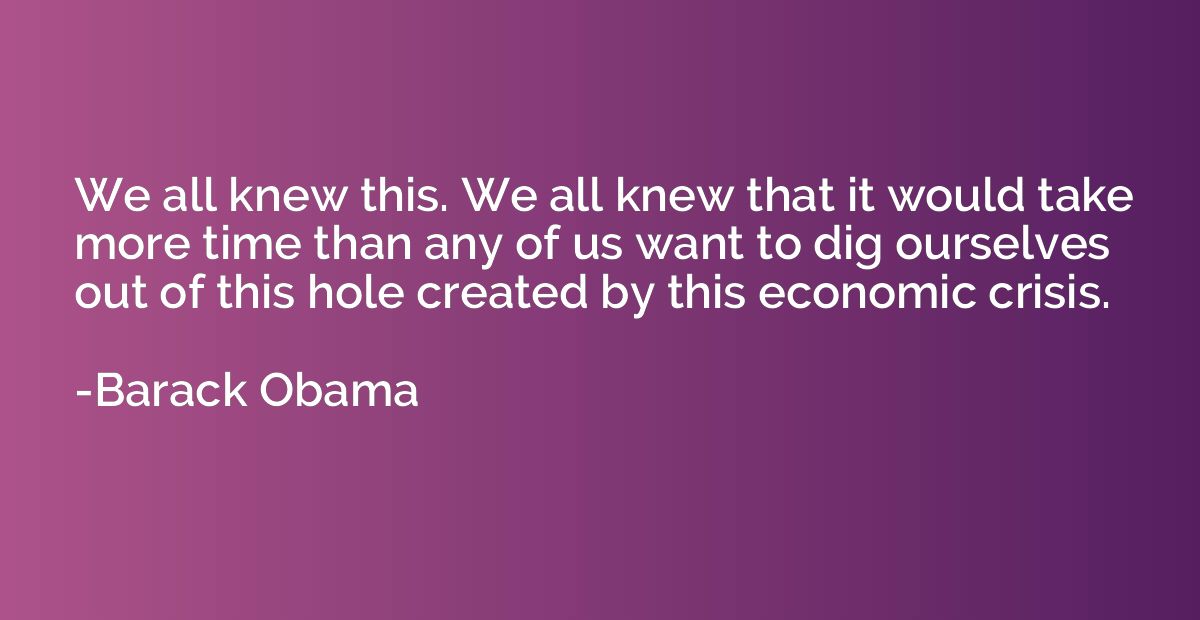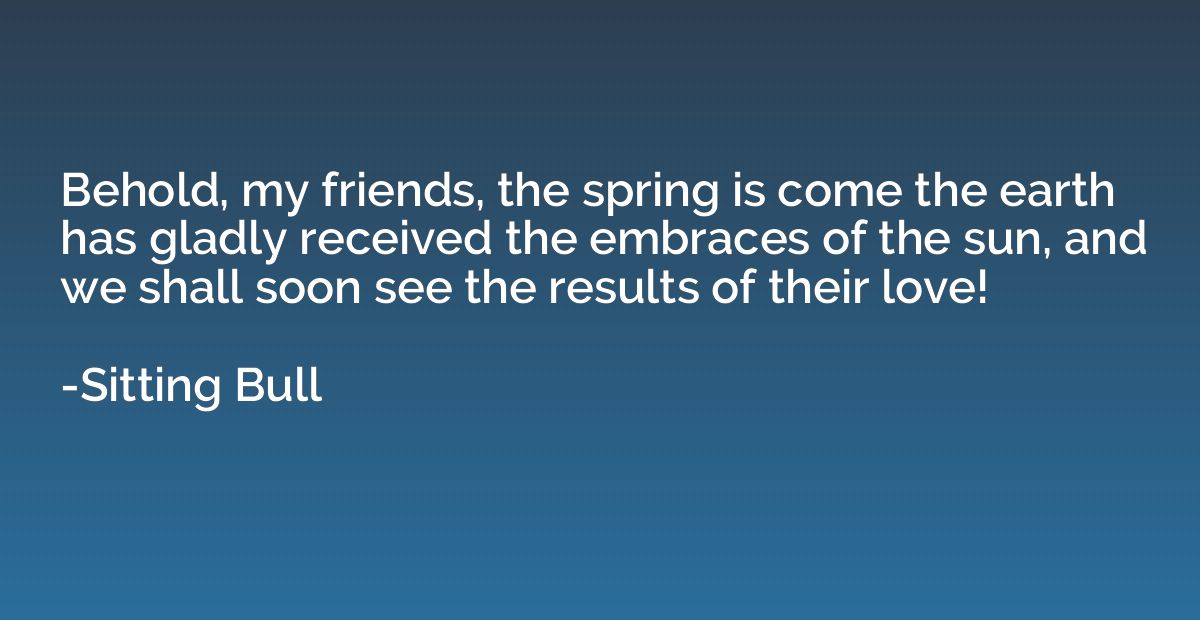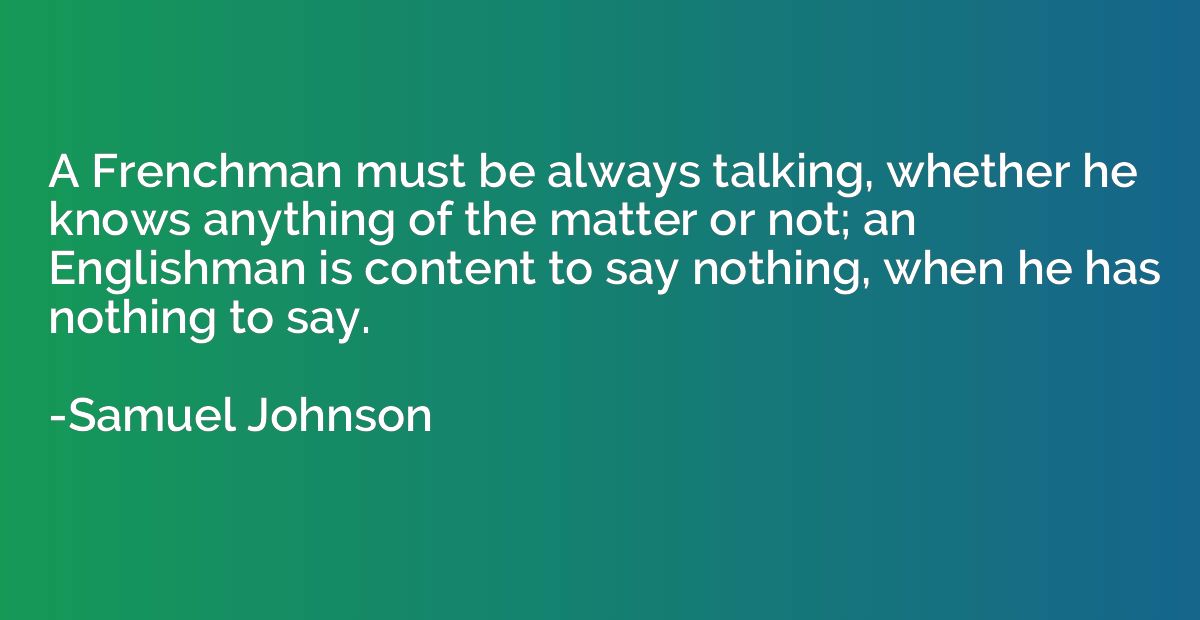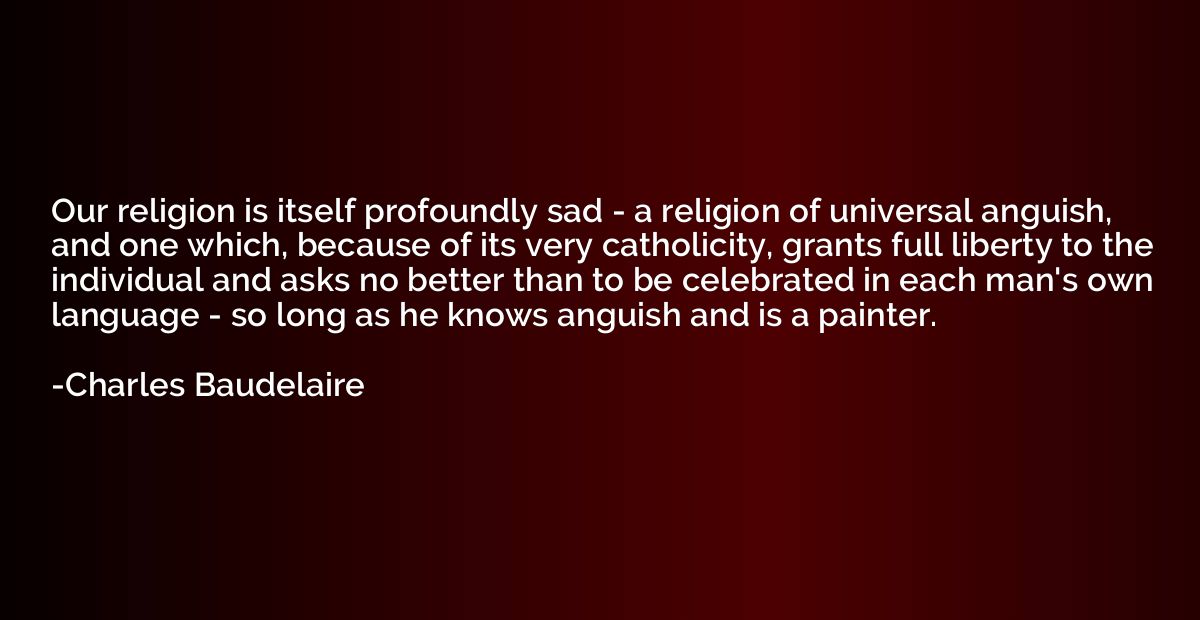Quote by Charlotte Bronte
But this I know; the writer who possesses the creative gift owns something of which he is not always master -- something that at times strangely wills and works for itself. If the result be attractive, the World will praise you, who little deserve praise; if it be repulsive, the same World will blame you, who almost as little deserve blame.
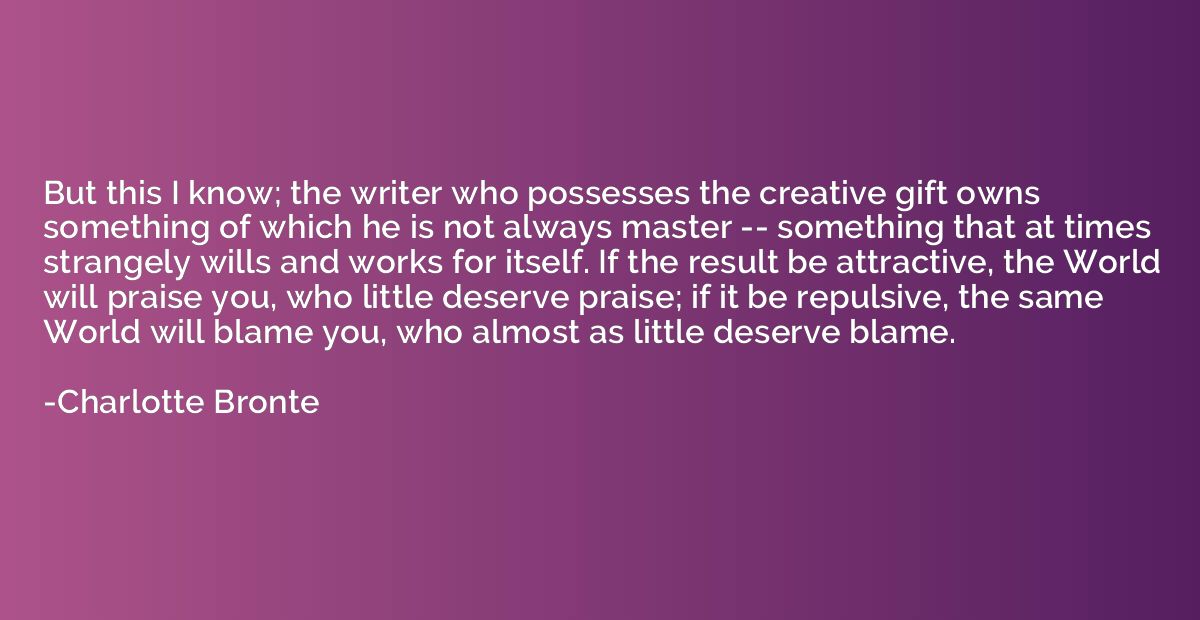
Summary
This quote suggests that writers who possess the creative gift are not always in complete control of their work. There is a force within them that sometimes takes charge and influences their writing. If the result is appealing, the world will praise the writer even if they don't necessarily deserve it. Conversely, if the outcome is unappealing, the world will criticize the writer, even if they are not entirely to blame. Therefore, this quote highlights the unpredictable nature of writing and the way in which external perception can sometimes outweigh the writer's intentions or efforts.





